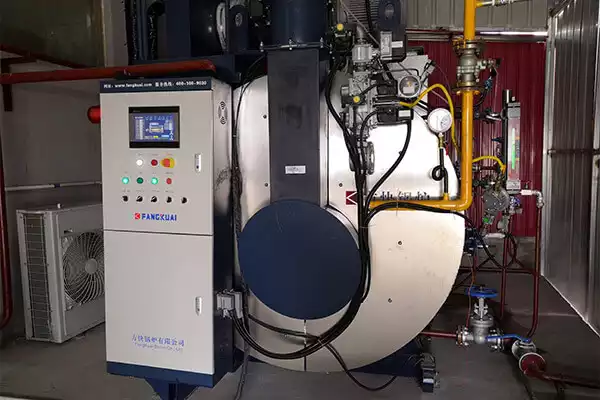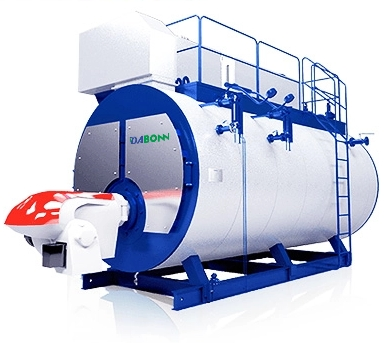
Introduction
Boiler pressure affects how efficiently your boiler works as well as how quickly it heats up your home. If the pressure in your boiler rises too high. It can cause problems like clogged pipes and inefficient heating. In this article, there are several ways to reduce boiler pressure. And help your system runs smoothly and efficiently.
What does boiler pressure mean?
Boiler pressure is a measure of how much water in your boiler is compressed. It’s expressed in pascals (Pa), which are equivalent to newtons per square meter (N/m^2). A higher boiler pressure means there’s more force pushing on every square centimeter of wall surface in your heating system.
What controls the pressure in a boiler?
Boiler pressure is controlled by the boiler pressure relief valve. The boiler pressure relief valve is an automatic safety device. It can safeguard your boiler and its components.
The purpose of this valve is to prevent damage from high-pressure steam or water in case of failure in any part of your heating system. For example, if you have a blockage somewhere in your pipes or radiators. This could lead to too much pressure building up inside your heating system. If left unchecked, it could cause serious damage to both you and your home.
What pressure should my boiler be?
Boiler pressure is measured in pounds per square inch (PSI). Boilers should be operating at 15-20 PSI. If your boiler’s pressure is too low, it may not be able to produce enough heat for your home or business. This can result in lower water temperatures and less hot water. If the pressure gets too high, it could damage pipes, valves, and seals inside the boiler itself.
You should check your boiler’s pressure regularly and make adjustments as needed. Especially if you notice significant changes from one month to another or from one part of your system to another.
Why reduce boiler pressure?
Reducing boiler pressure is a good idea for a number of reasons.
- It can prevent damage to the boiler. If your boiler’s pressure is too high, it may be damaged by overheating or overfiring. This can lead to costly repairs and replacements in the future.
- Reducing pressure will also reduce energy costs. Because it reduces the amount of fuel needed for heating your home or business premises. This is especially useful if you pay for heating on an hourly basis. Reducing your heating bills could save hundreds per year!
- A lower working pressure extends the life of your system by reducing wear and tear on components. Such as pumps and valves, which help keep costs down long-term too.
- One of the most common reasons to reduce boiler pressure is to improve efficiency. If a boiler is running at a lower pressure. It will use less fuel and produce less waste heat.
- Another reason why some people choose to reduce their boiler’s operating pressure is to lower noise levels in their home or office space. When water boils at lower temperatures, it doesn’t create as much noise as when boiling at higher temperatures.
What happens if pressure is high on a boiler?
High pressure can be dangerous. It can damage your boiler and cause it to break down. This means you’ll have no hot water or heating for your home. If this happens during the winter months. It could mean that you’re forced to spend money on emergency repairs in order to get back up and run again.
If left unchecked for too long, it can cause cracks or leaks in boiler components. high pressure can also cause damage inside your home. Including cracks in plaster walls and ceilings. As well as leaks in plumbing systems like faucets and toilets.
More serious cases can cause Boiler explosions. It can lead to serious injury or even death. So it’s important that you understand what causes them and how you can avoid them in the future.
How do I stop my boiler pressure from rising?
When you’re trying to reduce boiler pressure, the first thing you should do is check your boiler pressure gauge. If the reading on this gauge is higher than normal and there’s no reason why it would be. Then you’ll know that something is wrong with your system.
Next, check all of the parts of your heating system that could cause an increase in pressure:
- Pressure relief valve. This device releases steam when it reaches a certain point. If yours isn’t working correctly, this could cause excessive steam production. Even damage to other parts of your heating system.
- Thermostat. A malfunctioning thermostat may cause higher-than-normal temperatures inside your house. This will result in increased pressure from escaping through cracks in pipes and joints.
How do I reduce my boiler pressure?
Reducing boiler pressure involves a systematic approach to ensure the safe and efficient operation of the system. Here are some methods you can use to reduce boiler pressure:
Bleed Radiators and System
Air trapped in the heating system can cause pressure to build up. Start by bleeding the radiators to release any trapped air. Begin with the lowest level radiators and work your way up. You may need a radiator key to open the valve and allow air to escape.
Inspect the entire boiler system, including pipes, valves, fittings, and radiators, for any leaks. Even small leaks can lead to pressure buildup. Repair or replace any damaged components.
Adjust the Pressure Relief Valve
The purpose of the pressure relief valve is to relieve excess pressure in the boiler. If it’s not functioning correctly, it can lead to overpressure. Test the valve to ensure it’s working properly, and if necessary, replace it.
Drain the System
If bleeding radiators and adjusting the relief valve don’t resolve the issue, you might need to partially drain the heating system to reduce pressure. Ensure you follow the manufacturer’s guidelines for draining the system properly.
Check Expansion Vessel
The expansion vessel is crucial for maintaining proper pressure in a closed heating system. If the expansion vessel is damaged or has lost its pressure, it can cause high boiler pressure. Recharge or replace the expansion vessel as needed.
Adjust Filling Loop
Modern boilers often have a filling loop to add water to the system and maintain pressure. Ensure the filling loop is properly closed and not allowing excess water into the system.
Check Pressure Gauge
The pressure gauge on the boiler should be correct. If it’s inaccurate, it could lead to incorrect pressure readings. Replace the gauge if necessary.
Thermostat and Controls
Incorrect settings on the thermostat and controls can cause the boiler to operate at high pressure. Make sure the thermostat is set to the temperature you need. And keep the system from running..
Check Pressure Relief Valve
If your system has a pressure-reducing valve, make sure it’s functioning correctly. This valve reduces the incoming water pressure to a suitable level for your boiler system.
Professional Inspection
If you’re unable to identify or resolve the issue, it’s advisable to contact a professional boiler technician. They can perform a thorough inspection, and diagnose the problem accurately. And take the necessary steps to reduce boiler pressure safely.
FAQs.
What’s the right boiler pressure?
It ideally has a pressure range of 1 to 1.5 bar when the boiler is not operating.. However, it’s essential to consult your boiler’s manual or contact a professional to determine the specific pressure range recommended for your boiler model.
Is it dangerous to have high boiler pressure?
Yes, having excessively high boiler pressure can be dangerous. it causes the relief valve to open. High pressure can also strain the boiler and other components, increasing the risk of leaks and damage to the system.
Why is my boiler pressure rising to 3 bar when heating?
It might indicate a malfunctioning pressure relief valve, a faulty expansion vessel, or a problem with the pressure-reducing valve. Air trapped in the system or issues with water circulation can also contribute to pressure fluctuations.
Do bleeding radiators reduce boiler pressure?
Yes, bleeding radiators can help reduce boiler pressure. Especially if the air is trapped in the heating system. When air accumulates in the radiators, it can lead to pressure buildup. Bleeding the radiators releases the trapped air, which can subsequently lead to a reduction in boiler pressure.
Conclusion
In the end, it’s important to remember that boiler pressure is not something you should take lightly. If your boiler is experiencing issues with pressure. It could be a sign of bigger problems and may need to be addressed immediately. If you have any questions about how this process works or need help with your own system’s pressure levels, contact us today!
Get your best price
Quickly compare 3 FREE quotes
- Engineer quick quote
- The overall delivery speed is fast
- Financial choice
- Low installation costs and cost savings
25 years+ of boiler R&D
More than 20 innovative technologies
